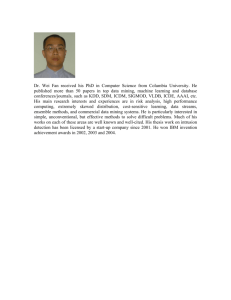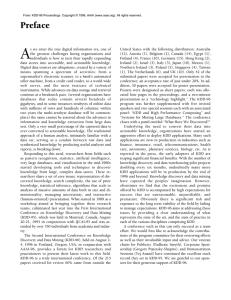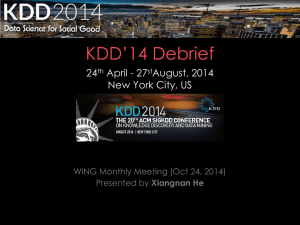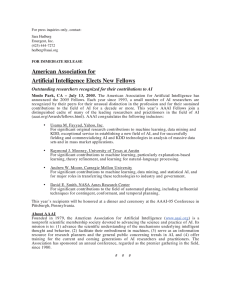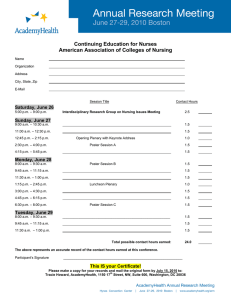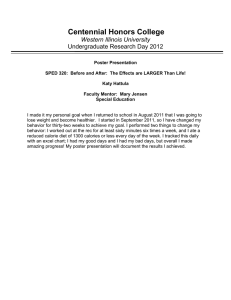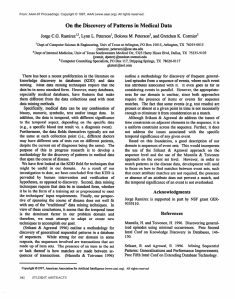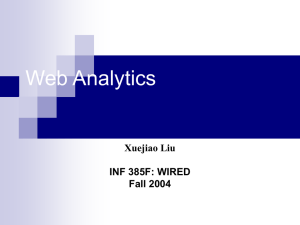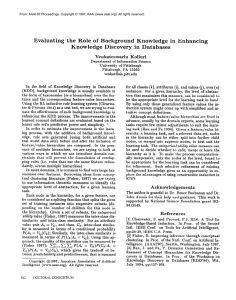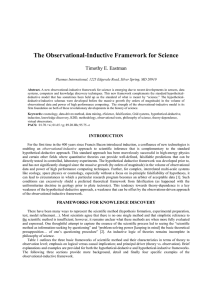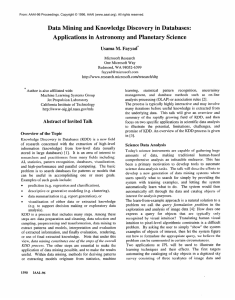K Preface Rakesh Agrawal and Paul Stolorz Gregory Piatetsky-Shapiro
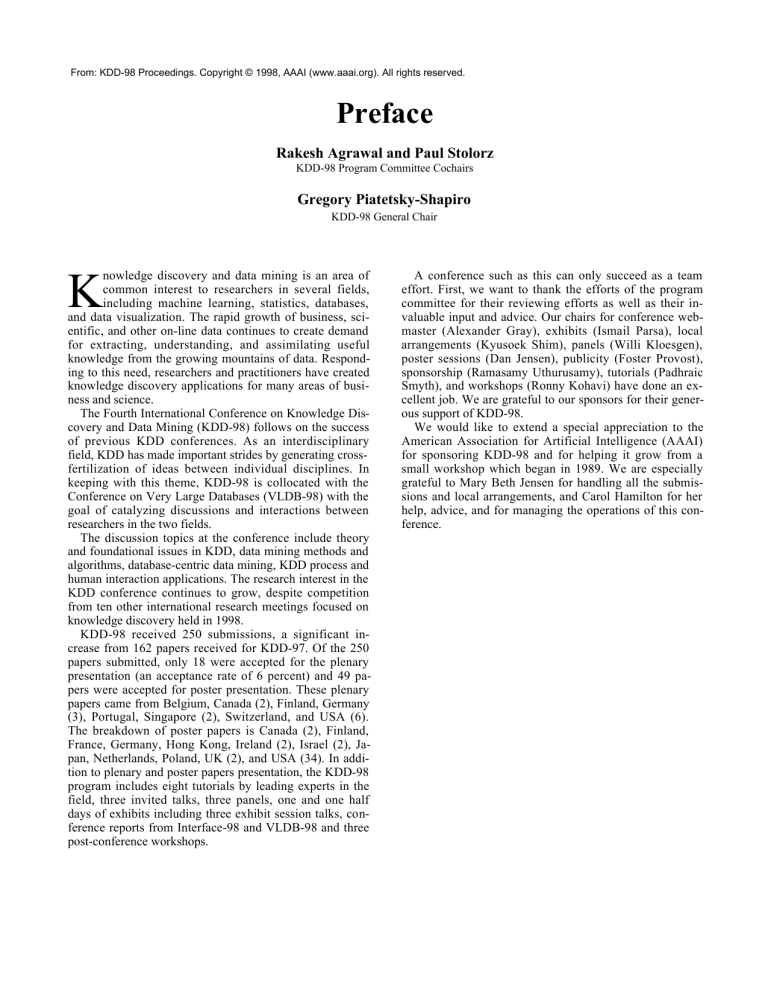
From: KDD 98 Proceedings. Copyright © 1998 , AAAI (www.aaai.org). All rights reserved.
Preface
Rakesh Agrawal and Paul Stolorz
KDD-98 Program Committee Cochairs
Gregory Piatetsky-Shapiro
KDD-98 General Chair
K nowledge discovery and data mining is an area of common interest to researchers in several fields, including machine learning, statistics, databases, and data visualization. The rapid growth of business, scientific, and other on-line data continues to create demand for extracting, understanding, and assimilating useful knowledge from the growing mountains of data. Responding to this need, researchers and practitioners have created knowledge discovery applications for many areas of business and science.
The Fourth International Conference on Knowledge Discovery and Data Mining (KDD-98) follows on the success of previous KDD conferences. As an interdisciplinary field, KDD has made important strides by generating crossfertilization of ideas between individual disciplines. In keeping with this theme, KDD-98 is collocated with the
Conference on Very Large Databases (VLDB-98) with the goal of catalyzing discussions and interactions between researchers in the two fields.
The discussion topics at the conference include theory and foundational issues in KDD, data mining methods and algorithms, database-centric data mining, KDD process and human interaction applications. The research interest in the
KDD conference continues to grow, despite competition from ten other international research meetings focused on knowledge discovery held in 1998.
KDD-98 received 250 submissions, a significant increase from 162 papers received for KDD-97. Of the 250 papers submitted, only 18 were accepted for the plenary presentation (an acceptance rate of 6 percent) and 49 papers were accepted for poster presentation. These plenary papers came from Belgium, Canada (2), Finland, Germany
(3), Portugal, Singapore (2), Switzerland, and USA (6).
The breakdown of poster papers is Canada (2), Finland,
France, Germany, Hong Kong, Ireland (2), Israel (2), Japan, Netherlands, Poland, UK (2), and USA (34). In addition to plenary and poster papers presentation, the KDD-98 program includes eight tutorials by leading experts in the field, three invited talks, three panels, one and one half days of exhibits including three exhibit session talks, conference reports from Interface-98 and VLDB-98 and three post-conference workshops.
A conference such as this can only succeed as a team effort. First, we want to thank the efforts of the program committee for their reviewing efforts as well as their invaluable input and advice. Our chairs for conference webmaster (Alexander Gray), exhibits (Ismail Parsa), local arrangements (Kyusoek Shim), panels (Willi Kloesgen), poster sessions (Dan Jensen), publicity (Foster Provost), sponsorship (Ramasamy Uthurusamy), tutorials (Padhraic
Smyth), and workshops (Ronny Kohavi) have done an excellent job. We are grateful to our sponsors for their generous support of KDD-98.
We would like to extend a special appreciation to the
American Association for Artificial Intelligence (AAAI) for sponsoring KDD-98 and for helping it grow from a small workshop which began in 1989. We are especially grateful to Mary Beth Jensen for handling all the submissions and local arrangements, and Carol Hamilton for her help, advice, and for managing the operations of this conference.
